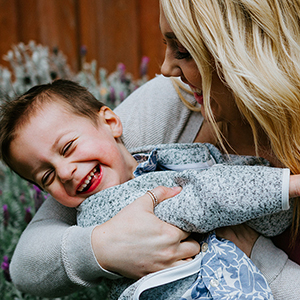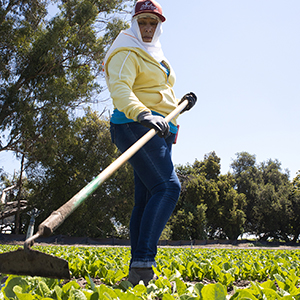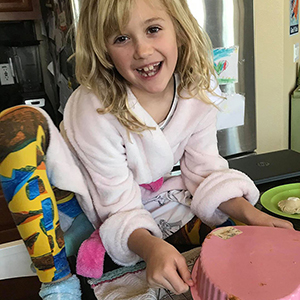
Positive Parenting During a Pandemic
BY NICOLE M. YOUNG, MSW
 Just when I got used to my son being away at college, BAM! He’s finishing his spring semester from home and we’re a family of four again with very different schedules, understandings of social distancing, and pre-existing handwashing habits. We’ve resolved most of the big differences that caused tension early on, but social distancing, school closures, and Stay at Home orders due to COVID-19 have turned many families’ lives upside down. Daily routines are disrupted, and everyday tasks like grocery shopping are increasingly difficult and stressful. Many parents I’ve talked to (virtually or from a safe distance, of course!) are coping with the pandemic in different ways.
Just when I got used to my son being away at college, BAM! He’s finishing his spring semester from home and we’re a family of four again with very different schedules, understandings of social distancing, and pre-existing handwashing habits. We’ve resolved most of the big differences that caused tension early on, but social distancing, school closures, and Stay at Home orders due to COVID-19 have turned many families’ lives upside down. Daily routines are disrupted, and everyday tasks like grocery shopping are increasingly difficult and stressful. Many parents I’ve talked to (virtually or from a safe distance, of course!) are coping with the pandemic in different ways.
Some parents see this as an opportunity to do family activities, take online classes, rediscover a hobby, binge watch movies, reconnect with friends and family, stay in pajamas all day, or just live life at a slower pace.
If this sounds like you, keep doing whatever works! Write in a journal, take photos, or record videos so that you remember the things that brought you joy while sheltering in place. Then think about which changes you want to maintain once social distancing ends. This is a chance to reset expectations, relationships, routines, and habits that were sources of stress before the pandemic.
Other parents are riding a roller coaster of emotions…and not always enjoying the ride. Many are fearful about working in settings that put them at risk for contracting COVID-19. Others are stressed about losing jobs and not having enough money for basic necessities – now and in the future. Some parents are on edge because it’s impossible to create a “work-life balance” with multiple kids and adults in the same space all day. Others are frustrated or worried about expectations for distance learning (and students that have disengaged or will fall farther behind). And others are struggling with being physically distant from their social circles.
If this sounds like you, you’re not alone! It’s natural to go through emotional highs, lows, twists, and turns during this pandemic. Many times, we create more stress by telling ourselves what we should or shouldn’t feel or do: I shouldn’t cry. I shouldn’t get frustrated or angry. I should be grateful for this time with my children. I should act happy so my kids don’t worry. But the emotional energy it takes to fight the feelings can leave parents feeling exhausted and defeated.
Instead, give yourself “permission” to ride the roller coaster of emotions. Try using coping statements to talk yourself through the difficult times: It’s ok to cry, even if I don’t know why I’m crying. This is hard right now, and I’ll get through it. I can love my kids and be frustrated with their behaviors. I lost my temper today, but tomorrow is a fresh start.
Many parents are worried about their children’s emotional well-being. Social distancing has been hard for children and teens who thrive on face-to-face interactions, as well as those who do best with daily, predictable routines. Children and teens may sense adults’ anxiety about COVID-19, but might not be ready or know how to verbally express their own feelings. Oftentimes, emotions are expressed through behaviors that appear disruptive, defiant, or out-of-character – e.g. tantrums, refusing to get out of bed or do schoolwork, teasing or fighting with siblings more than usual.
If this sounds like your family, you’re not alone! Try to follow (or create new) routines when possible, while being flexible about rules and expectations. Talk as a family about what will stay the same (e.g. mealtimes) and what can be flexible while sheltering in place (e.g. screentime limits). Spend brief and frequent quality time with your children throughout the day to reassure them you’re available when they need you. Develop a family plan for handling the changes that are happening – e.g. Wash our hands frequently. Take turns using the computer. Take deep breaths if we’re scared or stressed. This helps create a sense of control, which can help reduce anxiety about the unknown.
FINAL THOUGHTS: The range of reactions to these uncertain times is completely “normal.” If you or someone you know wants additional support, contact First 5 Santa Cruz County (465-2217 or [email protected]) for virtual Triple P parenting support or dial 211 (or text your zip code to 898-211) to find resources for food, housing, healthcare, and more.
This monthly article provides tips for families raising children, based on the world-renowned Triple P – Positive Parenting Program, available to families in Santa Cruz County. If you have a question or idea for a future column, please email [email protected].
Nicole Young is the mother of two children, ages 16 and 20, who also manages Santa Cruz County’s Triple P – Positive Parenting Program, the world’s leading positive parenting program. Scientifically proven, Triple P is made available locally by First 5 Santa Cruz County, the Santa Cruz County Health Services Agency (Mental Health Services Act) and the Santa Cruz County Human Services Department. To find a Triple P parenting class or practitioner, visit triplep.first5scc.org, www.facebook.com/triplepscc or contact First 5 Santa Cruz County at 465-2217 or [email protected].


You May Also Like

Mothers of the Farm
April 28, 2020
Reluctant Homeschooler
April 29, 2020

